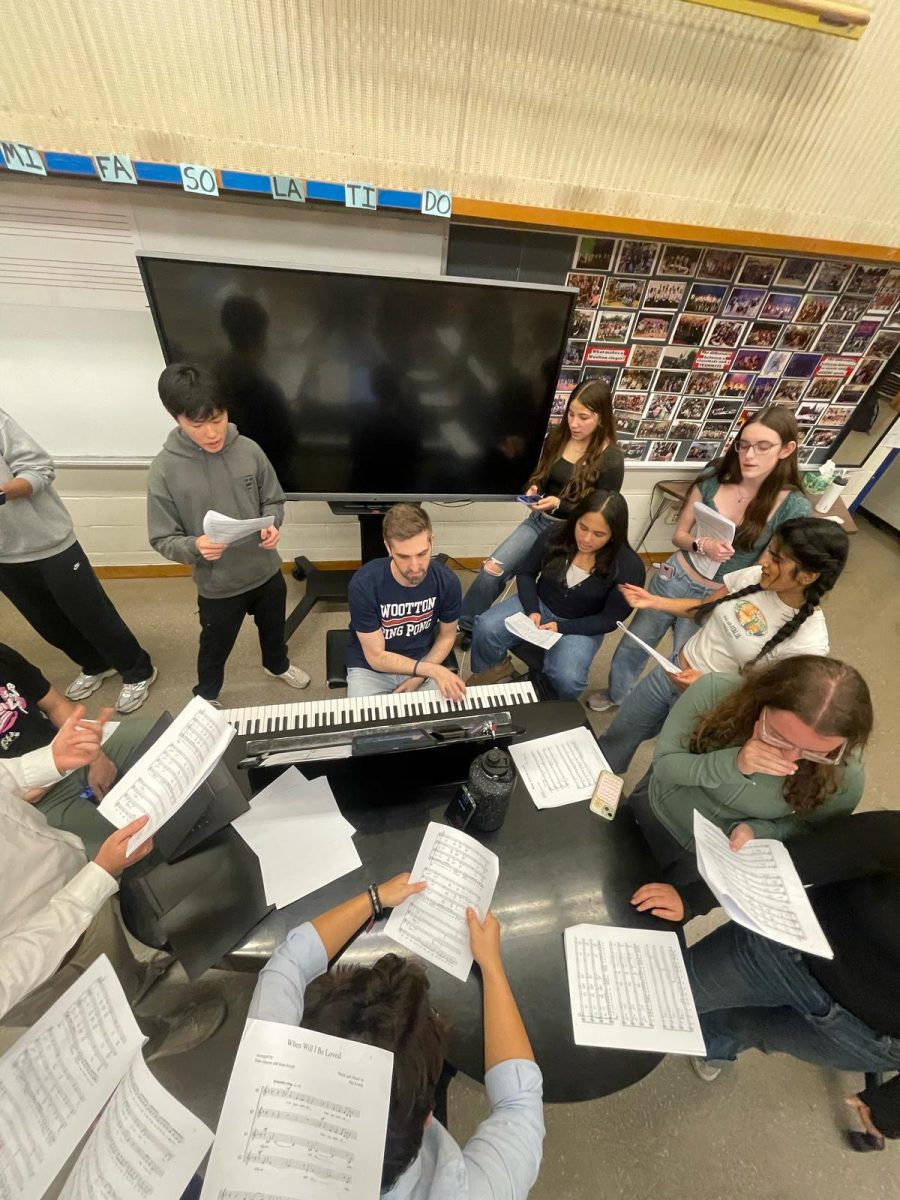RQ-Aye– Alyssa Bursie
The hours drag on as you stare at the clock waiting for the testing period to end. The classroom is silent as you attempt to focus on the exam. Finally, a sense of joy overcomes the classroom as the teacher announces, “This is the end of testing. Please put your pencils down.”
In past years, exam week was a time of stress, pressure and exhaustion. Students became zombies walking through the halls furiously studying their test review packets. Fortunately, this has become a thing of the past.
The required quarterly assessments allowed an end to the suffering caused by exams. The RQAs have not only allowed students to get better grades and reduced the amount of time necessary to take an exam, but have allowed an extra two weeks of instructional time for teachers.
Starting this school year, MCPS has implemented the RQAs to replace the previous two hour exams. The RQAs acts as small tests covering all the topics learned in the quarter. The RQA itself is weighted 10 percent of each quarter grade.
Now students’ semester grades are based off their performance during first and second quarter without the exam.
With the RQA, MCPS has changed the grading system thus makes it easier for students to raise their grades in a semester. RQAs will vary depending on the subject and the level of the class.
In previous years, going A then B would require an A on the exam, which can be difficult. With the RQA it is now possible to get an A in the semester by getting an A in the first quarter then B in the second.
Who wants to sit in a classroom for two hours and take a long, stressful exam? No one. The RQA is hours shorter than exams and takes only one or two class periods.
The brief tests act as a sigh of relief to students. The brevity of the exams allows students to spend time studying on a specific unit rather than attempting to remember a semesters worth of information.
Due to the shortness of testing, the school calendar has been able to be modified thus allowing teachers more instructional time.
Opponents to the RQA may argue that the RQA has taken away time from students that was given by the exam week schedule. However, this additional instructional time will allow students to have time to better understand the material rather than be rushed by teachers.
The RQA has allowed students to have a more stress-free option to raise their grades and receive additional instructional time.
RQ-Nay– Max Pasternak
Last year MCPS came to the conclusion that final exams weren’t beneficial for the county, and decided to get rid of them. To replace them they put in Required Quarterly Assessments, known as RQAs.
These tests are given one or two times per quarter in English, math, science and social studies classes. Social studies electives such as economics, and psychology do not give RQAs. In addition, select AP classes and some world languages give them but others, such as AP Lang do not.
Each department within the school had an allotted time slot where they could administer their test, which is better than one week where you had an exam in every core class.
These tests are much shorter than final exams, so much less material is covered. In some classes, teachers teach new material just for the RQAs, because the material is not even in the normal curriculum that they’ve been following in past years.
RQAs are much easier and less stressful than final exams, but students’ grades are better than they should be. Final exams gave students something for which to work hard, but RQAs are easy and give students a way to relax more and try less than they should. Semester exams weren’t meant to be extremely difficult, but they covered just about everything that was taught in the semester. Now, you can study for a test and forget it all after because chances are there won’t be an RQA on it.
RQAs are 10 percent of the quarter grade, so they do carry a fair amount of weight. But their point was to give students an alternative to semester exams, not to boost grades. In most cases, they help out grades, although the average scores on RQAs in some classes are on the opposite end of the spectrum than others.
The new grading system is way too easy and the fact that a student works hard for an A one quarter and can slack off and get a B in the other quarter and still get an A makes it unfair for the students who previously had straight A’s.
Since the new system is easier, students are less stressed, and that will especially be true toward the end of the semester. Usually when a student got an A, they would have to get an A the next quarter and still study for his or her exam. Now, the stress levels of students are coming down, as an A one quarter is obtainable compared to having to go AAA, or ABA.
This solution is better than students having to stress for the whole semester, but I think the county could have gone a better route to replace final exams. In addition, plenty of students who have already been here will see an uptick in their grades this year, which is unfair to the students who have already had all or mostly A’s.






![The 2025-2026 Editorial Board Alex Grainger, Cameron Cowen, Helen Manolis, Emory Scofield, Ahmed Ibrahim, Rebekah Buchman, Marley Hoffman, Hayley Gottesman, Pragna Pothakamuri and Natalie Pak (Chase Dolan not pictured) respond to the new MCPS grading policy. “When something that used to be easy suddenly becomes harder, it can turn [students’] mindset negative, whereas making something easier usually has a better impact. I think that’s where a lot of the pushback comes from. But if you put emotions aside, I do think this change could help build stronger work ethic,” Ibrahim said.](https://woottoncommonsense.com/wp-content/uploads/2025/09/fqr5bskTXpn0LRQMmKErLuNKdQYBlL726cFXBaWF-1200x900.jpg)
